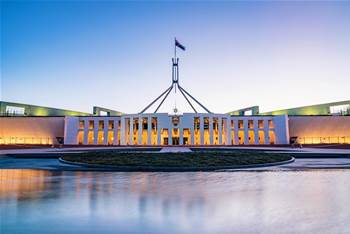After nine years in opposition, Labor has been returned to government, and is increasingly likely to form a majority.
But while the exact composition of the incoming government remains unclear, the impact on the tech sector could be profound, with a swag of pledges unveiled during the campaign.
Here’s what to expect from a first-term Labor government:
Critical technologies
Quantum technology, AI and robotics are among the critical technologies that Labor intends to bankroll through its $1 billion Critical Technologies Investment Fund.
Focused on building local industry, the fund – part of the $15 billion National Reconstruction Fund – will provide investment support through loans, equity investments and loan guarantees for business.
Labor is keen to use the fund to avoid a situation where Australians have to leave the country in order to access early-stage venture funding necessary to grow their startups.
The new government is also planning to boost research and development in emerging technologies with government through the creation of an Advanced Strategic Research Agency (ASRA).
Modelled on the US Defense Advanced Research Projects Agency (DARPA), ASRA is expected to fund “pivotal research in breakthrough technologies for national security”.
Critical technologies had also been a focus for the previous Coalition government under a 2021 blueprint that identified 63 technologies across eight categories as being in the national interest.
NBN
Labor is set to funnel an extra $2.4 billion into NBN upgrades, allowing 90 percent of Australia in the fixed line footprint to order gigabit speeds by 2025.
The investment would give an additional 1.5 million homes and businesses access to fibre by 2025, expanding NBN Co’s existing fibre-to-the-node (FTTN) overbuild program.
NBN Co is currently spending nearly $3 billion overbuilding about half of its FTTN footprint to bring gigabit speeds to eight million premises or up to 75 percent of homes and businesses by 2023.
Labor has also promised to fund a NBN service for 30,000 families currently without home internet connection for a year, with plans for a longer-term strategy in future years.
It has similarly pledged $400 million worth of improvements to non-metro mobile coverage that would be uncovered through an audit that uses signal measuring devices on AusPost vehicles.
Contractors
In government, Labor has pledged to reduce “wasteful spending on private external labour” by $3 billion over four years, with $500 million to be reinvested in the “internal capacity and capability” of the Australian Public Service (APS).
While this will result in 1080 new frontline service delivery jobs at Services Australia, Veterans’ Affairs and the National Disability Insurance Agency, it is also likely to impact IT contractors.
A Labor-led senate inquiry in October 2021 called for an end to the “technical capability gap” that has resulted from an “over-reliance” on external contractors.
“The committee believe the government must rapidly increase the digital literacy of the APS to ensure that it can become a digital leader,” the report said.
But there’s no suggestion that this will lead to any major change in the use of contractors for highly-skilled work in the short term.
Spending on IT contractors at Service Australia – the government's biggest IT shop – was alone more than $500 million when it was last disclosed by in early 2020.
Labor has also pledged to abolish the staffing cap in the APS, which should give it more flexibility to hire APS staff instead of contractors.
Jim Chalmers, who was sworn in as Treasurer on Monday, has similarly promised to “pick up and run” with the findings of the root-and-branch Thodey review.
Training and skills
With Australia to see a shortfall in technology workers in the years ahead, Labor has pledged to help create 340,000 new jobs by 2030.
It plans to do this by creating 465,000 fee-free TAFE places and 20,000 additional university places that focus on areas impacted by skills shortages.
An additional 2000 “Commonwealth supported places at accredited university accelerators” will also be provided through its previously announced Startup Year initiative.
Startup Year will see Labor offer contingent loans to 2000 final year students or recent graduates to support their participation in accelerator programs.
Separately, Labor has promised $3 million for quantum technology PhDs, with the aim of attracting and retaining talent, much like its $1 billion Critical Technologies Investment Fund.
Cyber security
Cyber security also looks set for significant changes with the incoming Labor government, particularly around accountability, despite the absence of policy during the election campaign.
Tim Watts, who was previous the Shadow Assistant Minister for Cyber Security, has previously advocated for a “step change in the Commonwealth’s cyber security culture”.
This would involve greater interaction with the “Australian cyber security ecosystem outside of government”.
“Australia’s cyber security is a whole-of-nation endeavour. It demands that we draw on the different experiences and perspectives of individuals across these domains,” he said earlier this year.
Labor is also expected to introduce a bill that would create a mandatory ransomware notification scheme for businesses and government.
It is also possible that it could borrow some of the Coalition’s Crimes Legislation Amendment (Ransomware Action Plan) Bill 2020, which lapsed at the start of the election campaign.
Big tech regulation
The former Coalition government has been on a crusade over the past four-and-a-half years to wrestle the power of the tech giants, as part of the digital platform’s inquiry.
It also passed the Online Safety Act, forcing social media companies, internet and hosting providers to remove harmful material within 24 hours.
There is no suggestion this would change under the incoming government, with Labor backing the reforms in opposition.
The controversial Social Media (Anti-Trolling) Bill, which lapsed ahead of the election, is a different story, however.
Labor has previously said the bill – which critics argued would do nothing to address trolling on social media – would require significant amendments.



.jpg&h=140&w=231&c=1&s=0)
.png&h=140&w=231&c=1&s=0)





















